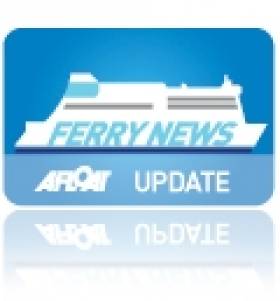ESB’s 2040 strategy Driven to Make a Difference: Net Zero by 2040 sets out a clear roadmap for ESB to achieve net zero emissions by 2040.
ESB will develop and connect renewable energy to decarbonise the electricity system by 2040. ESB will invest in the development of new renewable generation, including onshore and offshore wind and solar, and will significantly increase the amount of renewable generation connected to our electricity networks.
ESB will:
- Deliver more than a fivefold increase in our renewable generation portfolio to 5,000MW.
- Reduce carbon intensity of generation fleet from 414 to 140gCO2/kWh by 2030.
- Decarbonise 63% of our generation output by 2030 and 100% by 2040 (up from c20% now).
Offshore wind
ESB know the importance of offshore wind in tackling climate change and delivering net zero. Ireland has a unique capability given its prime location to take advantage of the potential of offshore wind. ESB are working hard to develop offshore wind projects for the benefit of everyone across society in Ireland and the UK. This includes ongoing engagement with marine users and local communities so ESB can deliver these significant projects.
Offshore wind will play a major role globally in our fight against climate change. It will help to replace energy generated by burning fossil fuels with that from a clean, safe and secure renewable energy source. Ireland’s geographic location on the exposed edge of the Atlantic presents us with a significant opportunity to generate electricity from wind – both offshore and onshore.
Power from onshore wind farms currently provide over one-third of Ireland’s electricity needs. But, whilst its marine area is many times the size of its landmass, Ireland’s offshore wind potential is only starting to be realised. ESB have a coastline stretching over 3,000km but only one operational offshore wind farm – Arklow Bank, with a capacity of 25 MW. In contrast, Belgium’s coastline is only 63km long, but it has already developed more than 2,000 MW of offshore wind. In Great Britain, with a coastline four times the length of ours, offshore wind generation now equates to over 440 Arklow Banks, with an installed capacity of 11,0000 MW as of late 2021.
The Irish Government's target to install 5,000 MW of offshore wind capacity in our maritime area by 2030 is set out in the Climate Action Plan 2021. It also has the objective to source 80% of Ireland’s electricity needs from renewables by the same year. In line with this, ESB is applying its professional and proven engineering expertise to the challenges set within the Climate Action Plan.
ESB are committed to playing a strong role in developing Ireland’s offshore wind potential for the benefit of the people of Ireland. This will be done in consultation with marine users and local communities, and with due care for the marine environment.
























































